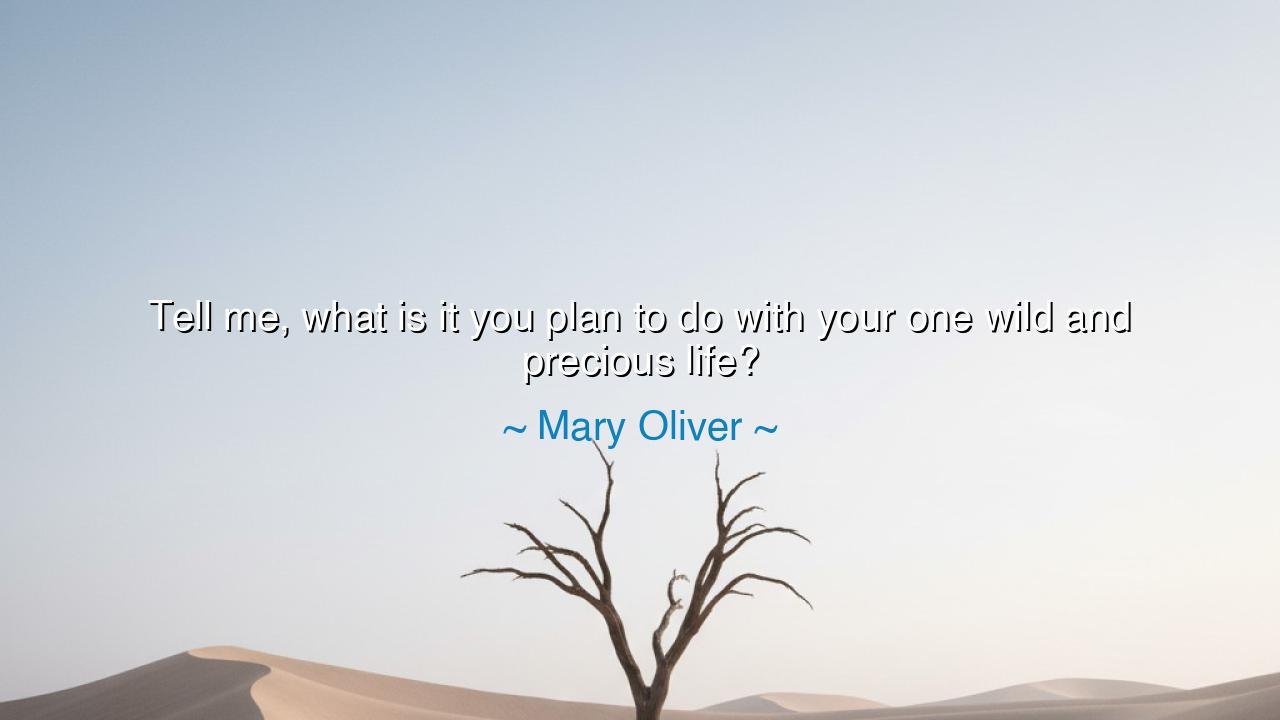
Tell me, what is it you plan to do with your one wild and






In the quiet of the wilderness, amidst the rustling leaves and the timeless march of the seasons, the poet Mary Oliver speaks words that echo through the ages: “Tell me, what is it you plan to do with your one wild and precious life?” These words carry the weight of a deep and timeless truth—the reminder that life, in all its fleeting beauty, is both wild and precious, and how we choose to live it defines not only the course of our existence but the very essence of who we are. In asking this question, Oliver beckons us to reflect on the purpose of our lives, to examine the choices we make, and to confront the profound possibility that our time here is limited and therefore sacred.
The idea of a wild and precious life is not merely a call to live freely or to embrace adventure, though these are certainly important. It is a deeper invitation to approach life with an awareness of its fragility and transience. We are born into a world full of beauty and possibility, yet we are also bound by time, and this awareness, Oliver suggests, should spur us to live intentionally. In the ancient world, the philosopher Socrates often spoke of the examined life, one that is actively engaged in reflection, purpose, and truth. To live fully, Socrates taught, is not to drift through the years without thought, but to actively engage with the world, to question, to learn, and to grow. Oliver’s question challenges us in the same way: how are we using our brief time on this earth, and are we doing so with a sense of purpose and awareness?
Consider the story of Leonardo da Vinci, a man whose life exemplified the pursuit of living a wild and precious existence. From painting the Mona Lisa to sketching ideas for flying machines, Leonardo embraced the possibilities of life without hesitation. He was not bound by conventional thinking, nor did he allow fear or doubt to stop him from pursuing the full potential of his talents. His life was an example of someone who truly understood that life is a gift, a fleeting opportunity to explore, to create, and to leave a mark upon the world. Da Vinci’s life reminds us that the wildness Oliver refers to is not chaos, but rather the unbounded exploration of one’s potential. He did not squander his precious life, but used it to push the boundaries of what was known and to create beauty that would inspire centuries to come.
Similarly, Anne Frank, in the face of unimaginable adversity, lived a life that was both wild and precious. Though her time was tragically cut short, the words she left behind in her diary continue to echo across generations. In her final years, Anne Frank grappled with the constraints of a world at war, yet she found beauty in the everyday—writing with profound insight about the human condition, love, and the importance of hope. Anne’s life reminds us that purpose is not always about grand gestures or worldly accomplishments, but about the courage to live fully, even in the face of hardship. Her legacy is a testimony to how, even when life seems unfair, we can choose to find meaning in the wild moments that come our way.
The question Mary Oliver asks is, in essence, a challenge: to consider not just the path we have chosen, but the one we are still capable of choosing. It is an invitation to become conscious of the fact that we have agency over our lives, that despite the unpredictable nature of existence, we can still carve out a life filled with meaning. Oliver's words are not a call to be reckless or irresponsible, but a gentle reminder that we must not let fear, complacency, or habit dictate the course of our days. Being present and embracing the beauty of life, no matter how fleeting, is the essence of living a full and rich existence. Whether we find that beauty in nature, in art, in relationships, or in our work, it is about the depth of experience and the love we bring to every moment.
The lesson from Mary Oliver’s question is clear: the way we live matters. Our lives, though they may seem ordinary in the grand sweep of time, are precious and unique. The choices we make each day—how we treat others, how we pursue our passions, how we show up in the world—determine the legacy we leave. This legacy is not necessarily defined by fame or success but by the love, kindness, and authenticity we offer to the world. It is not enough to exist; we must choose to live, to make conscious decisions that reflect who we truly are and what we value.
In the quiet moments of reflection, let us all ask ourselves the same question that Mary Oliver posed: what are we doing with this wild and precious life? Let us not wait for time to slip away unnoticed but seek to live fully, with intention and purpose, embracing the beauty and challenges that each day brings. Whether through creativity, service, love, or simply being present, let our lives be marked by the courage to live deeply and authentically. For in this pursuit, we will find the richness and meaning we seek, and ultimately, leave behind a legacy that speaks to the fullness of our being.






AAdministratorAdministrator
Welcome, honored guests. Please leave a comment, we will respond soon